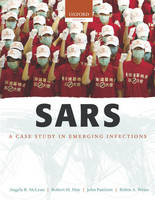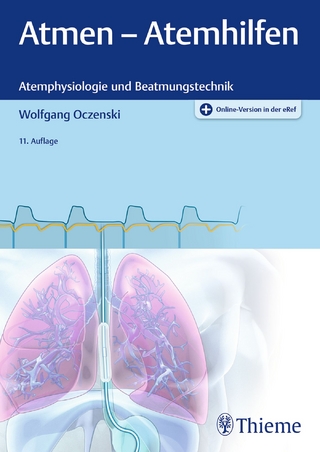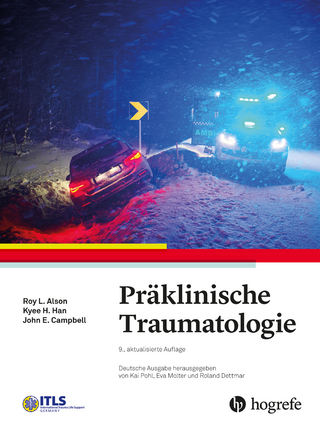
SARS
Oxford University Press (Verlag)
978-0-19-856819-3 (ISBN)
- Titel ist leider vergriffen;
keine Neuauflage - Artikel merken
The sudden appearance and rapid spread of Severe Acute Respiratory Syndrome (SARS) in 2002 served to alert the world to the fact that emerging infections are a global problem. Living in affluent societies with well-developed healthcare systems does not necessarily protect people from the dangers posed by life-threatening infections. The SARS epidemic tested global preparedness for dealing with a new infectious agent and raised important questions: how did we do, and
what did we learn?
This book uses the SARS outbreak as a case study to enumerate the generic issues that must be considered when planning the control of emerging infections. Emerging infections are more than just a current biological fashion: the bitter ongoing experience of AIDS and the looming threat of pandemic influenza teach us that the control of infectious disease is a problem we have not yet solved. Scientists from a broad range of disciplines-biologists, veterinarians, physicians, and policy makers-all
need to prepare. But prepare for what?
SARS: a case study in emerging infections provides an up-to-date and accessible overview of the tasks that must be addressed by a community that wishes to confront emerging infections. Each chapter is written by a world expert and offers an authoritative and timely overview of its subject. While focusing on SARS, the book addresses a whole range of pertinent considerations and issues, from the use of new mathematical models to account for the spread of infection across global airline
networks, to a discussion of the ethics of quarantining individuals in order to protect communities. The book will be of interest to students, academics, and policy makers working in the fields of disease ecology, medicine, and public health.
Angela McLean is a University Lecturer in the Zoology Department of the University of Oxford. Her professional interests are the transmission dynamics and within-host dynamics of infectious agents. Lord Robert May of Oxford is President of the Royal Society and Professor of Zoology at the University of Oxford. John Pattison is Director of Research and Development at the Department of Health in the UK. Robin Weiss is Professor of Viral Oncology at University College London.
1. Introduction ; 2. Environmental and social influences on emerging infectious diseases: past, present, and future ; 3. Evolutionary genetics and the emergence of SARS coronavirus ; 4. Influenza as a model system for studying the cross-species transfer and evolution of the SARS coronavirus ; 5. Management and prevention of SARS in China ; 6. Confronting SARS: A view from Hong Kong ; 7. The aetiology of SARS: Koch's postulates fulfilled ; 8. Laboratory Diagnosis of SARS ; 9. Animal origins of SARS coronavirus: possible links with the international trade in small carnivores ; 10. Epidemiology, transmission dynamics and control of SARS: the 2002-2003 epidemic ; 11. Dynamics of modern epidemics ; 12. The international response to the outbreak of SARS, 2003 ; 13. The experience of the 2003 SARS outbreak as a traumatic stress among frontline healthcare workers in Toronto: lessons learned ; 14. Informed consent and public health ; 15. What have we learnt from SARS? ; References ; Index
| Erscheint lt. Verlag | 1.4.2005 |
|---|---|
| Zusatzinfo | 5 maps, 4 halftones and numerous line drawings |
| Verlagsort | Oxford |
| Sprache | englisch |
| Maße | 188 x 245 mm |
| Gewicht | 340 g |
| Themenwelt | Medizinische Fachgebiete ► Innere Medizin ► Pneumologie |
| Studium ► Querschnittsbereiche ► Epidemiologie / Med. Biometrie | |
| Studium ► Querschnittsbereiche ► Infektiologie / Immunologie | |
| Studium ► Querschnittsbereiche ► Prävention / Gesundheitsförderung | |
| Naturwissenschaften ► Biologie ► Evolution | |
| Naturwissenschaften ► Biologie ► Mikrobiologie / Immunologie | |
| ISBN-10 | 0-19-856819-3 / 0198568193 |
| ISBN-13 | 978-0-19-856819-3 / 9780198568193 |
| Zustand | Neuware |
| Haben Sie eine Frage zum Produkt? |
aus dem Bereich


